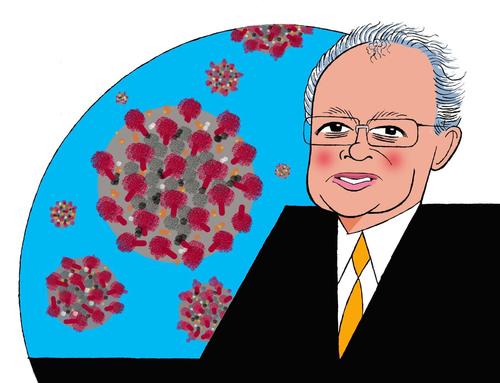
To put the coronavirus pandemic in perspective, consider what happened when the bubonic plague struck London in 1665. The onset of the disease could be sudden, says Yale historian Frank Snowden: “You actually have people afflicted and in agony in public spaces.” Trade and commerce swiftly shut down, and “every economic activity disappeared.” The city erected hospitals to isolate the sick. “You have the burning of sulfur in the streets—bonfires to purify the air.”
Some 100,000 Londoners—close to a quarter of the population, equivalent to two million today—died. Some sufferers committed suicide by “throwing themselves into the Thames,” Mr. Snowden says. “Such was their horror at what was happening to their bodies, and the excruciating pain of the buboes”—inflamed lymph nodes—that are the classic symptom of the bubonic plague. Social order broke down as the authorities fled. “Death cart” drivers went door to door, collecting corpses for a fee and sometimes plundering the possessions of survivors.
Click here to read the full article.